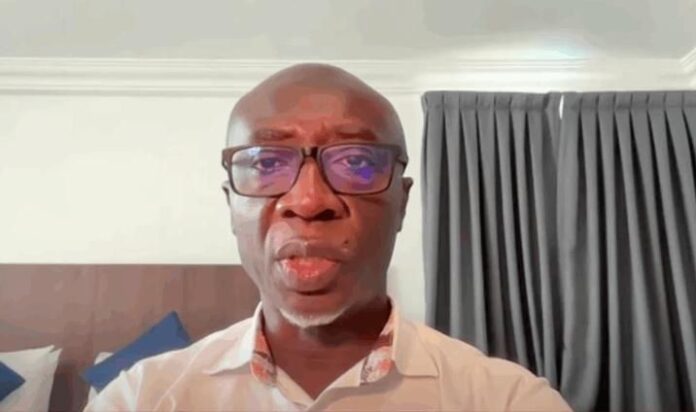An experienced legal scholar and Associate Professor at the School of Law, University of Ghana, Prof. Kwadwo Appiagyei-Atua, has urged Ghana’s security agencies to exercise greater sensitivity and restraint in their operations, especially considering the country’s evolving political environment.
Speaking on Newsfile, a weekly current affairs programme hosted by Samson Lardy Anyenini, Prof. Appiagyei-Atua made the remarks in response to the arrest of social commentator Kumi Adenta by operatives of the National Intelligence Bureau (NIB).
The professor warned that high-handed or opaque security operations risk undermining public trust and could be perceived as politically motivated.
“The issue is quite sensitive. We live in a situation where there has been a recent change of government. The new government is trying to position itself to rule for the next four years, and the NPP is still coming to terms with having lost the elections. So, the whole environment seems to be politicized or politically charged, and a lot of political tension is still in the air,” he stated.
“As much as the person may be in the wrong, there must be some sensitivity and an approach that is less militaristic than what we see, so that the person may be invited quietly and the necessary information taken. That would be a better way of dealing with the matter,” he advised.
Kumi Adenta, known for his sharp commentary on national issues, was picked up in the early hours of Friday, 24th May under circumstances that have raised concern among the New Patriotic Party (NPP) and segments of the public. His arrest, reportedly in connection with the publication of false news by the National Investigations Bureau (NIB), has sparked debate over freedom of expression and the role of intelligence agencies in a democratic setting.
Offering a more measured perspective on the arrest, Prof. Appiagyei-Atua further suggested that the authorities consider a less aggressive response to avoid heightening political tensions.
“I’m thinking that while there may be the possibility of arresting him and charging him for giving out false information, there may also be the possibility of cautioning him—something that will not increase the political temperature and cause the issue to be politicized,” he concluded.



